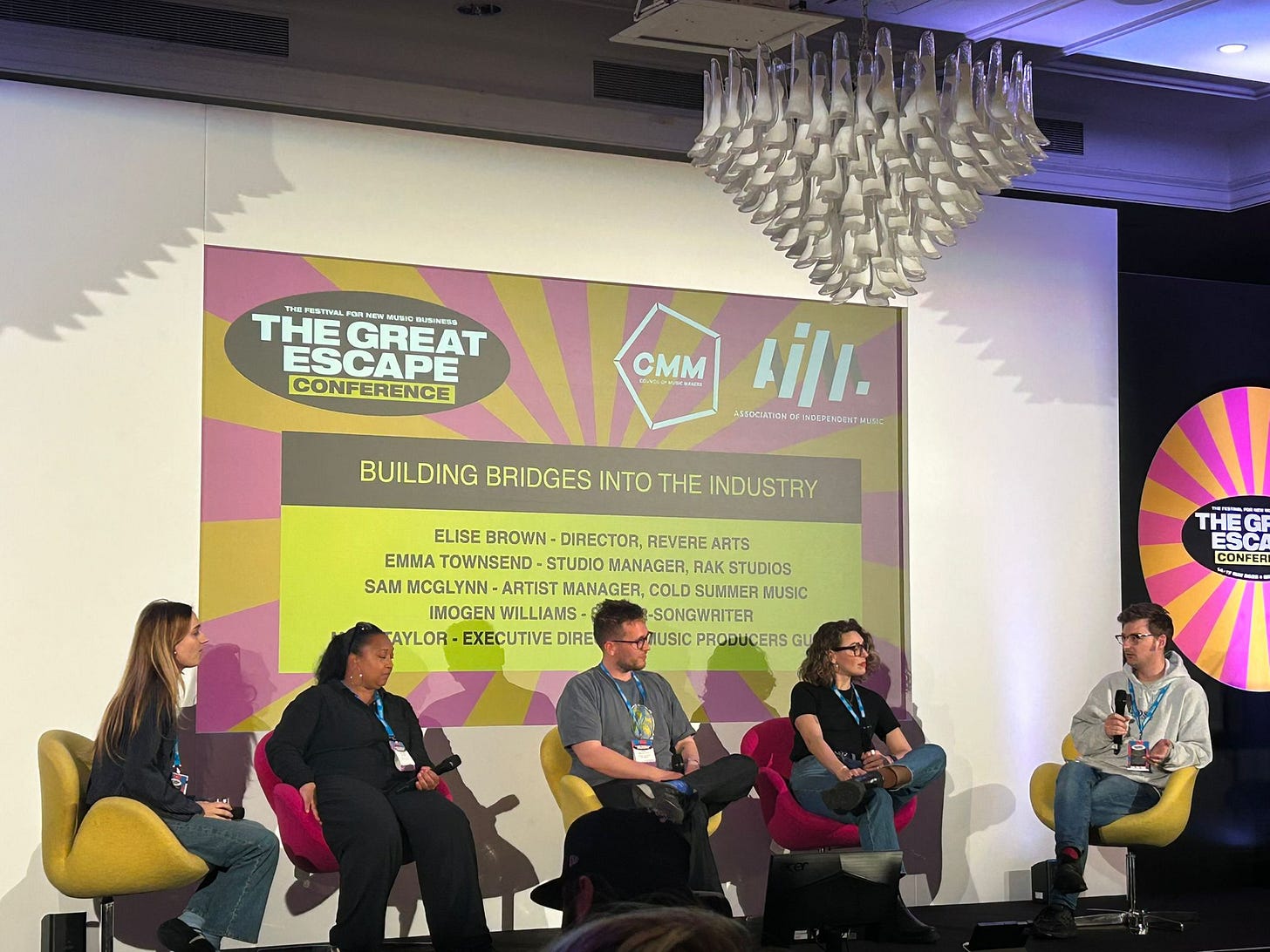Are working-class people in the music industry destined to be Remy from Ratatouille?
On barriers, rats, and the unlikely heroes hidden in plain sight

Last week, I was in Brighton as it hummed softly beneath the festival lights of The Great Escape. Streets brimming, buzzing with ambition, the days salted by sea and hope. Inside the conference room, the microphone seemed heavier than I’m used to. Another space I never imagined myself stepping into. Another door crow-barred open, another panel set to ask the question the industry never quite answers: why are there so few working-class people in music?
As a child, animated films would take my eyes away from the bleak world I lived in. An unlikely hero always resonated deeply, someone who dared to dream beyond their place in life. But none of them quite stayed with me like the 2007 Pixar classic, Ratatouille. Remy, the little rat, who created flavours nobody imagined, lived inside walls, scavenging dreams alongside scraps. Always questioning, always untrusted, always unwelcome because of what he was and where he was from. Remy made magic, yet to the chefs, he remained vermin.
Being viewed as vermin is not new for me. When you grow up in the care system, life is lived in corners, tucked away in files marked confidential, shuffled quietly between care workers whispered decisions and social workers scribbled assessments. Always in the margins, always between worlds, never quite home anywhere. Like Remy, I learnt how the world sees rats. Messages whispered clearly through quiet barriers with signs declaring, ‘you’re not supposed to be here’. My accent betrays my image. My clothes betray my past. My scars, my nervous hesitations, they betray my story. I wonder if they ever see talent, or just a scumbag that found its way in.
Remy didn’t belong in a kitchen, just as we are quietly told, in subtle and often unsubtle ways, that we do not belong here. On stage, backstage, in label offices, in control rooms, at mixing desks. Rats in kitchens; working-class kids in music. Both unsettling to those accustomed to the dining without discomfort.
The irony whispers itself. We are exactly what they seek. They want grit, passion, authentic voices from gritty streets, gritty homes, the dirt beneath the fingernails. They want Remy’s artistry, his flavour, his genius, but not his whiskers, not his tail, not his story. They love our taste, yet fear our contamination.
At The Great Escape, a panel discussion wedged between headline shows, hidden in a basement conference room, on a smaller stage away from the bright lights. Are we rats nibbling around the edges, tolerated so long as we don’t stray too far, so long as we know our place?
The panel itself felt radical, each of us living proof that rats can make it into the kitchen. All of us working-class, each having clawed past barbed wire and electric fences put purposefully in our way.
We discussed the challenges we came up against as we began our careers, but we all mentioned how we each had a key turning point which led to us working in music. Each turning point was a person.
Remy found Linguini, the awkward, fumbling kitchen assistant who gave him a way into the world he’d always been barred from. Linguini, who recognised magic and created a place for it, a partnership born by chance, by risk, by openness. The film suggests Linguini inherited none of the talents from Gusto, his legendary chef father, but I disagree. He inherited the most crucial talent, the ability to see and nurture potential, no matter how humble its origins are .
Linguini embodies a simple truth. Talent from humble sources can thrive, but only if it finds a way in, a conduit, someone who points to a path, someone who believes enough to risk it.
Should the music industry use finding a Linguini as a quality filter? Should it rely on chance encounters, random kindness, fleeting charity, so working-class people can be part of it? This reliance on rare generosity won’t sustain it forever. It leaves too many behind, talented but unseen.
Still, all the panellists, myself included, remind me of Remy, how he cooked anyway. With passion, precision, defiant brilliance. He created flavours that demanded recognition. He claimed space. He made something impossible, possible. This is why we leave our homes behind, searching for a chance to escape. To expand. To meet people who see something more than vermin in our shadows, who glimpse at potential beneath our scars.
We concluded our panel acknowledging that barriers will always exist, and that’s fine. But those barriers must be equal. Transparent. With no gatekeepers. Fairly faced regardless of background. The industry can’t survive on the hope each of us will find a Linguini to let us in.
Did we answer the question, probably not. But we had the discussion. This is a place to start. Hopefully, as enough of us start to emerge, the industry will be forced to have a little less conversation and a little more action.
Did you know that liking this post or leaving a comment helps me connect with more readers? I’m guessing if you've read this far, you probably enjoyed the writing, so please click the heart below. Your support is valued - thank you 🙏.
If you haven’t succumbed to all the other pleas of subscribing. Be a hero and pop your email address in the box, and receive newsletters as they happen in your inbox.

